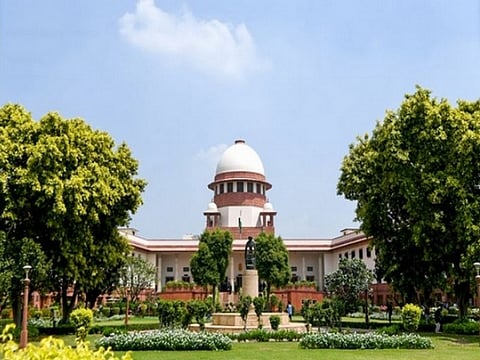SC to hear petitions challenging demolition of properties linked to crime accusations
NEW DELHI: The Supreme Court is set to hear on Tuesday, 17 September, a batch of petitions challenging the demolition of properties belonging to individuals accused of crimes.
The petitions, filed by Jamiat Ulama-i-Hind and others, seek directions to various state governments, including Uttar Pradesh, to halt demolitions without following due legal process.
According to the Supreme Court's cause list, a two-judge bench comprising Justice B.R. Gavai and Justice K.V. Viswanathan will preside over the matter.
The petitioners have claimed that numerous states are engaging in the practice of demolishing properties of those accused of crimes such as rioting and violence, often without adhering to legal procedures.
The Jamiat Ulama-i-Hind had previously filed a plea over the demolition of buildings in the Jahangirpuri area of the national capital. They have now extended their appeal to include Uttar Pradesh, calling for a halt to further demolitions of properties belonging to individuals accused of violence.
The petition emphasises that no demolition should occur without following due process and issuing prior notice.
In a similar case, during a hearing on 12 September, the Supreme Court criticised law enforcement agencies in Gujarat for attempting to demolish an accused person's home without following the rule of law.
The court condemned this "illegal" act, stating: "In a country where actions of the State are governed by the rule of law, the transgression by a family member cannot lead to the demolition of their legally constructed house, or it would be equivalent to running a bulldozer over the laws."
The three-judge bench, led by Justice Hrishikesh Roy, made these remarks while hearing a writ petition filed by Javedali Mahebubmiya Saiyed against the Gujarat government.
The court reiterated that demolishing a house based on allegations of crime without due legal process is unacceptable in a nation governed by the rule of law.
"Crime has to be proved through due legal process, not through bulldozer justice," the bench remarked. It further added that an individual's alleged involvement in a crime is not sufficient grounds for property demolition, stressing that the crime must be proven in a court of law.
The Supreme Court underscored that the threat of demolition in such cases is "inconceivable in a country where law is supreme." The bench warned that actions such as these could be perceived as "running a bulldozer over the laws of the land."

